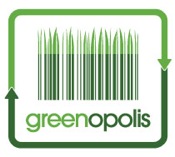Concepts In Sustainability: LISA, Locavores And The Flavor Of Fairness
Concepts Of Sustainability is a continuing Greenopolis series exploring the larger ideas behind current sustainability trends.
Concepts In Sustainability: LISA, Locavores And The Flavor Of Fairness
“Sustainability is not just a buzz word, It’s an idea that encompasses taking care of the world in front of you. I think restaurants are at the forefront of this issue because food is an absolute in our life and we have to think about the impact we have,” says Kevin Gillespie, a rising star in the arena of sustainable cooking practices. Gillespie is one of 40 young chefs honored for their sustainable cooking practices by Mother Nature Network.
A new breed of chef in the culinary world of fast food and high profit margins, Gillespie is just one of many who are building on a youth-infused locavore idealism.
By constructing daily menus that feature locally produced, seasonal and sustainable ingredients, farm-to-fork chefs can take dining from perfunctory to other-worldly, or, even in the other direction... from froufrou to minimalist and simple. Elegantly so, in fact.
The sustainable table chef at large is working to create a new class of diner, “eco-epicureans” , who embrace sustainability with enthusiasm, and further the on-going conversation about what eating healthy food really means.
Defining Healthy Food.
The term “healthy food” may well be defined for some by Michael Pollan's bestseller, In Defense Of Food.
Pollan defines real food, healthful food, as “the sort of food our grandmothers would recognize as food.” But I wonder if he should have spent a little more time defining the word “grandmother,” as his assumption is that all grandmothers are the same. Pollan argues that our grandmothers would not recognize, and therefore refuse to eat, something as simple as store-bought yogurt.
Well, my Granny (and my Great-Granny for that matter — both farm-raised, country-proud and defiantly self-sufficient) loved store-bought yogurt and placed it the same category with sliced bread. (Another invention they both loved, as they had spent many hours over many years baking bread, milking cows and turning sour milk into yogurt.)
In Defense is a long-winded and sometimes rambling tome explaining why it's a good idea to go foraging in the wild for your salad greens. Ultimately, it dead-ends at the mantra, “Eat Food. Not Too Much. Mostly Plants.”
Sound advice on its face, for a sustainable and nourishing diet. But it seems to be written by — and for — an elitist with the time and resources to avoid ever shopping at the Piggly-Wiggly. It also romanticizes the idea that foraging, farming, hunting and killing our own food on a daily basis is not hard, back-breaking work that saps your strength, steals your youth and ultimately wears you out.
Like the other radical writers, Pollan’s worldview is willfully impractical, if in the end, persuasive. At least from the point of view that consuming fewer petrochemicals is a good thing.
So We’re Not All Farmers. Now What?
So, we’re not all cut out to spend our days farming and foraging. After all, what would the world do if we were all so busy gathering sustenance that there was no one left to write opinionated essays about best-selling books? Besides, I for one don’t like the idea of killing anything, even though I’m not so much of a hypocrite that I won’t eat venison if it’s offered to me. Deer meat sausage rules, right, Joe?
Any way, considerable research has been directed toward developing farming methods and whole farming systems that can increase sustainability by reducing production costs, soil erosion and pollution.
Low-input/sustainable agriculture (LISA), emphasizes methods for legume-based crop rotations, use of animal and green manures, integrated crop/livestock enterprises, biological and mechanical control of weeds and pests, and soil and water conservation.
Many land grant universities are conducting experiments to aid the transition away from chemical and capital intensive farming methods, and are initiating closer ties with farmers interested in or already practicing LISA methods.
Changing Farm Philosophies
The LISA concept has generated a lot of friction between segments within the agricultural and environmental communities. The low-input perspective is that farmers must reduce their use of chemicals as a means of reducing harmful contaminants released into the environment. But some argue that reducing commercial chemicals is not enough, and that they must be completely eliminated in all agri-business. But the question remains, aren’t there any chemicals that could be used in farming, that would be environmentally acceptable? Some argue that the environmental impact of some commercial chemicals is offset by the needs of a hungry world.
It might be more effective to argue that farmers should use commercial chemicals sparingly and wisely, and that reduced use of commercial chemicals will reduce their overall impact.
It’s a subtle difference, but one that might be effectively used by LISA advocates. The inability of LISA advocates to convince environmentalists of the soundness of “low-impact” strategies has lead to an almost complete dismissal of the “low-input” concept in favor of the more idealized “sustainable” concept.
But sustainability is not only about being fair to the future, and leaving an ecologically sound planet behind. Sustainability must also embrace the need for an economically viable food system.
While we need to strive for more efficient and eco-friendly farming methods, we must remember that peoples lives — and livelihoods — are at stake. Perfection, after all is the enemy of the good.
Greenopolis.com is dedicated to our users. We focus our attention on changing the world through recycling, waste-to-energy and conservation. We reward our users for their sustainable behaviors on our website, through our Greenopolis Tracking Stations and with curbside recycling programs.
GREENOP5704

